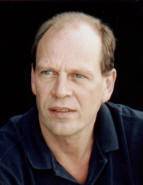| |

Paul Halley
MA (Cantab.)
FRCO
ARCT
Grammy-winning
composer,
conductor,
performer
CURRENTLY
Co-Founder and
Creative Director
Pelagos Incorporated
Owner and
Artist/Composer
Back Alley Music (ASCAP)
Director of Music
The Cathedral Church of All Saints
Halifax, Nova Scotia
FORMERLY
Director of Music
The University of King's College
Halifax,
Nova Scotia
Director of Music
St. George's Anglican Church
Halifax, Nova Scotia
University Musician
Atlantic School of
Theology
Halifax, Nova Scotia
Director of Music
Trinity
Episcopal Church
Torrington, Connecticut
Co-founder/Director
Joyful Noise, Inc.
Chorus Angelicus & Gaudeamus
Torrington, CT
Director of Music
The Cathedral Church
of St. John The Divine
New York, New York
Composer/Performer
and Recording Artist
The Paul Winter Consort
Litchfield, Connecticut
|
|
Recent
_________________________________________
Paul Halley’s letter to the audience in the program notes for the
King’s at the Cathedral Series: “For All The Saints” concert
featuring Pierre de la Rue's "Requiem".
The Chapel Choir
of the University of King’s College
with Ensemble Regale
Cathedral of All Saints, Halifax, Nova Scotia
Sunday, November 2, 2014 - 4:00 pm
(In the Octave of All Saints)
Dear Friends,
Here we are again, back in the
Cathedral for our 6th annual concert commemorating all the
saints. Over these years we have presented settings of the Requiem
by Fauré, Duruflé, Schnittke and Victoria as well as Rachmaninov’s
Vespers. We have sung texts from the fifth to the twenty-first
centuries set to music by composers as stylistically diverse as Josquin
and Pärt. Given such a range of repertoire, and the generally positive
response from our audiences, it seems odd that I would have any
hesitation about presenting today’s centrepiece, the Requiem
composed by Pierre de la Rue at the end of the 15th
century. After all, two years ago I programmed the Requiem by
Alfred Schnittke, perhaps the wildest setting in existence, and the
response was pretty favourable, with comments about the courage involved
in bringing such avant-garde music to Halifax, and the surprising beauty
found in the midst of great anguish.
But for all the challenges of
that piece, I had no doubt that it would speak to people. In the letter
to the audience that year I wrote, “Schnittke’s Requiem comes
from a time in his life when he was trying to counter the chatter and
noise of the world around him with almost primal screams, using all the
resources at hand to create music that demanded our attention; that
shouted down the innocuous and meaningless.” Schnittke’s world is our
world. The world of De la Rue is another thing altogether. And the
question is not so much whether the music of De la Rue can still speak
to us as whether we still have the ears to hear it.
I have recently read “The
First Thousand Years: A Global History of Christianity” by Robert Louis
Wilken. I was constantly reminded of the considerable cultural gap that
exists between us and the people of the first millennium. For them the
veil between heaven and earth was thin. Theirs was a more precarious
existence. Questions of life and death seemed to have been part of daily
conversation. Philosophy mattered, and miracles happened. So while the
people of late antiquity and medieval times were lacking appropriate
dental plans and adequate cell phone coverage, they did have the benefit
of living in a culture that, partly from sheer necessity, emphasized the
eternal over the ephemeral. The title “Requiem” comes from the opening
words of the Introit, “rest eternal”, two words that seem to fly in the
face of contemporary culture. Whatever our culture emphasizes, rest and
things eternal don’t seem to enter into it. In preparing Pierre de la
Rue’s Requiem I was made aware of how much closer the sensibility
of his time was to the first millennium than to our day. If eternal rest
can be expressed in music, this Requiem may be the nearest
thing.
Wilken writes, “In the
generation of Boethius and Cassiodorus the challenge was no longer how
to transform what had been received; it was rather to preserve and
transmit what was forgotten.” I think the same challenge may be facing
us today. We hear about the loss of species. We must also deal with our
loss of memory. We must also recognize what has been forgotten. I
believe Pierre de la Rue’s Requiem is one of those great works of
art that has the capacity to stir the memory, to move us towards
recovering something of what has been lost. It requires us to put aside
our demands for the novel, the sensational and the ephemeral in order to
rediscover our hunger for the eternal. This music quietly allows us “to
enter into that gate and dwell in that house, where there shall be no
darkness, nor dazzling, but one equal light; no noise, nor silence, but
one equal music.”
I am very thankful for your
presence here today.
Yours,
Paul |
|
| |
|
|
Previous articles
Click on item below to link to PDF and read:
"For All The Saints 2012"
November 4, 2012 - Halifax, NS
Paul Halley's note to the audience
in the concert programme booklet
Letter to the audience for
King’s at the Cathedral Series
“For All The Saints 2012” concert
featuring
"Requiem Mass"
by Alfred Schnittke,
November 4, 2012
_____________________________________
"For All The Saints 2011"
November 6, 2011 - Halifax, NS
Paul Halley's note to the audience
in the concert programme booklet
Letter to the audience for
King’s at the Cathedral Series
“For All The Saints 2011” concert
featuring "All-Night Vigil" (Vespers)
by Rachmaninov.
November 6, 2011
_____________________________________
"For All The Saints 2010"
November 3, 2010 - Halifax, NS
Paul Halley's note to the audience
in the concert programme booklet
Letter to the audience for
King’s at the Cathedral Series
“For All The Saints 2010” concert
featuring ‘The Requiem’ by Maurice Durufle.
November 3, 2010
_____________________________________
"Pipes
Around the Pacific
Orgues Autour du Pacifique"
Paul Halley delivers the Keynote Address
to the Plenary Session of the
Royal Canadian College of Organists
2010 Convention, Victoria, BC
July
18-22, 2010, Victoria BC, Canada
Address
"The Examined Life" by Paul Halley
_____________________________________
“A
King's Christmas 2009”
featuring
The Chapel Choir
of the University of King’s College
with
special guest, Suzie
LeBlanc, soloist
and Dr. Neil Robertson, narrator.
Cathedral of All Saints, Halifax, Nova Scotia
December 13, 2009
Paul Halley’s letter to the audience
in the
program notes for A King's Christmas 2009
_____________________________________
"For All The Saints 2009"
November 7, 2009 - Halifax, NS
Paul Halley's note to the audience
in the concert programme booklet
Letter to the audience for
King’s at the Cathedral Series
“For All The Saints 2009” concert
featuring ‘The Requiem’ by Gabriel Faure.
November 7, 2009
_____________________________________
Paul Halley reviews the program,
thanks the choir and his new assistant, Nick Halley,
and describes things to come at St. George's...
all with his inimitable humor.
Annual Report of The Director of Music
to
St. George’s Anglican Church, Halifax, NS
January 26th, 2009
_____________________________________
"A King's Christmas"
December 12 and 14, 2008 - Halifax, NS
Paul Halley's note to the audience
in the concert programme booklet
Remarks in 'A King's Christmas'
programme booklet
December 12 & 14, 2008
_____________________________________
"A musician's Remembrance Day quandary"
Paul Halley, in a recent interview with Paul McLeod
of
METRO HALIFAX,
November 10, 2008.
Interview with Metro Halifax
St. George's Anglican Church
November 10th, 2008
_____________________________________
In his report to the annual meeting
of King's College Chapel,
Halifax,
Paul Halley describes his first year on the job.
Report Of The Director Of Music
King’s College Chapel
April 10th, 2008
_____________________________________
Many of you continue to ask what prompted
Paul Halley's move to
Halifax in 2007, and you
may have enjoyed Paul's rather hilarious
description of his first year on the job as
Director of Chapel Music at
the University of King's College.
Here is a transcription of Paul's interview
with Jonathan Bruhm,
Communications Director at King's,
January 2007, on precisely that
question.
Paul Halley: An interview with Jonathan Bruhm,
Communications Director,
University of King's College, Halifax,
NS
January 9, 2007
_____________________________________
|
|

